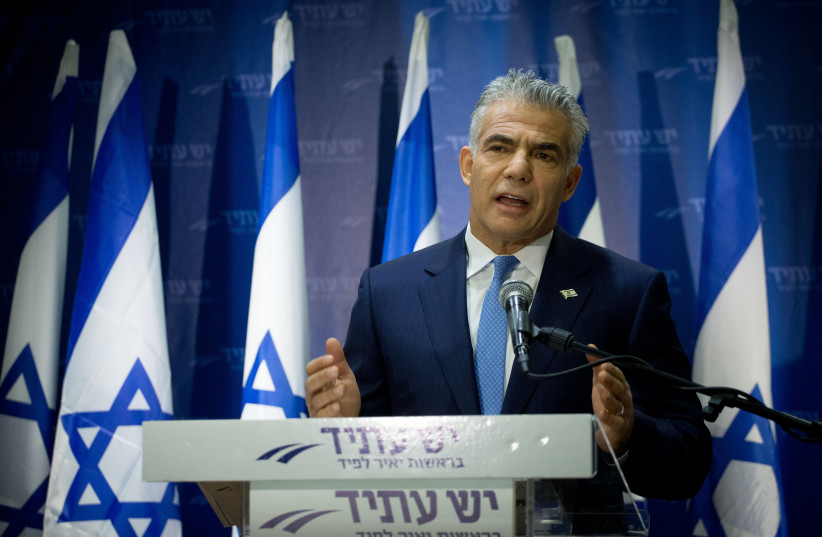The first meeting of the EU-Israel Association Council in a decade is set to take place next month with Prime Minister Yair Lapid present.
The high-level dialogue between Israel and the EU was founded in 1995 to strengthen relations between the sides, but it has not met since 2012. The planned date for the council meeting in Brussels was October 6, but there was discussion of postponing as of Wednesday.
The EU announced the reconvening of the EU-Israel Association Council in July. Lapid, who is also foreign minister, will take part along with high-level political figures from EU member states.
The joint statement for the council is still in the works, as it must be reached by consensus among EU member states. Ireland, Sweden and Belgium, among others, have long been more resistant to holding a council meeting because of the conflict with the Palestinians and would likely want language referring to those issues, while Hungary, the Czech Republic and others may be more reluctant to do so.
In recent years, several EU states blocked further council meetings from being held, first due to Operation Protective Edge in 2014 and then to protest Israeli policies toward the Palestinians. Some states tried to dangle a council meeting before Israel as a reason to make progress toward a two-state solution.

Earlier this year, EU High Commissioner for Foreign Affairs Josep Borrell argued that an Association Council meeting “is a good occasion to engage with Israel” about the Palestinians.
Israel canceled the 2013 EU-Israel Association Council to protest the EU’s decision to differentiate between settlements and the rest of Israel in all agreements, and that remains a sore point between Jerusalem and Brussels.
Cabinet calls off planned vote
The cabinet called off its planned vote this week to approve Israel joining Creative Europe, an EU funding program for the arts, because it excluded Judea and Samaria, east Jerusalem and the Golan Heights. Alternate Prime Minister Naftali Bennett intervened in the matter, saying it was not appropriate for an interim government to sign such an agreement.
The total budget for Creative Europe is €2 billion. Israel planned to contribute NIS 33 million (€9.6m.), and the Culture and Sport Ministry expects Israeli culture will get back far more than that.
Jerusalem Deputy Mayor Fleur Hassan-Nahoum warned last week that the territorial terms of joining Creative Europe serve the interests of the anti-Israel boycott movement, preventing artists from performing in large parts of the capital, which she said “is too high a price for strengthening ties between Israel and Europe.”
After the renewed EU-Israel Association Council was announced in July, Lapid said: “The fact that the 27 foreign ministers of the European Union voted unanimously to strengthen economic and diplomatic ties with Israel proved Israel’s diplomatic power and the government’s ability to create new opportunities with the international community.”
Lapid set reconvening the Association Council as one of his top goals when he became foreign minister last year.
The council meeting also comes as EU Middle East peace envoy Sven Koopmans has complained that he has not been able to meet with senior Israeli officials, including Lapid, Defense Minister Benny Gantz and President Isaac Herzog.
In addition, amid the energy crisis in Europe, the EU, Israel and Egypt signed a memorandum of understanding in June to facilitate the export of gas from Israel to the EU via Egypt, where it would be liquefied.
